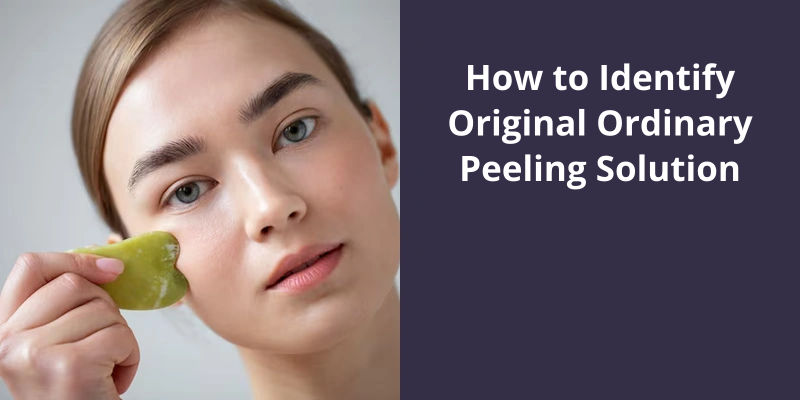While accidentally ingesting small amounts of perfume may not cause immediate harm, larger quantities or those containing high levels of isopropyl alcohol can have severe repercussions. The potential risks of swallowing perfume range from symptoms resembling alcohol intoxication, such as dizziness and impaired coordination, to more severe consequences like breathing difficulties, seizures, and even a coma. Recognizing the seriousness of the situation, immediate action should be taken to mitigate any potential harm caused by the ingestion of perfume.

What Happens if a Baby Drink Perfume?
Severe difficulty breathing. vomiting or diarrhea that doesn’t go away. severe stomach pain. These symptoms indicate a potential allergic reaction or toxicity, and immediate medical attention should be sought.
If a child swallows perfume, the first thing to do is to remain calm but act quickly. If there are any visible signs of distress, such as choking or difficulty breathing, call emergency services right away. Otherwise, call the national poison control hotline or your local emergency helpline for guidance. They’ll provide expert advice on what steps to take based on the specific product ingested and the childs age and weight.
In the meantime, it’s important to prevent further ingestion of the perfume. Remove any remaining perfume from the childs reach and ensure that all other fragrance products are secured out of their sight. Avoid inducing vomiting unless specifically instructed to do so by a medical professional.
While waiting for medical assistance, observe the child closely for any changes in their behavior or symptoms. Keep them calm and reassured, as stress can worsen their reaction. It may be helpful to provide small sips of water if the child is conscious and able to swallow, but don’t force them to drink if they’re showing signs of discomfort or distress.
Medical professionals will likely conduct a thorough examination and may recommend tests or treatments based on the childs condition. They may suggest monitoring the childs vital signs, performing blood tests, or administering activated charcoal to help absorb any remaining perfume in the digestive system.
Safety Tips for Storing Perfumes and Other Fragrance Products to Prevent Accidental Ingestion
- Keep perfumes and fragrances out of reach of children.
- Store perfume bottles in a cool and dry place.
- Avoid exposing perfumes to direct sunlight or extreme heat.
- Make sure perfume bottle caps are tightly closed to prevent leaking.
- Store perfumes away from food and beverages to avoid accidental ingestion.
- Consider using a cabinet or designated storage area for your perfume collection.
- Keep perfume bottles away from open flames or sources of ignition.
- If you’ve multiple perfumes, organize them neatly to minimize the risk of knocking them over.
- Check expiration dates on perfume bottles and dispose of any expired products properly.
- Consider storing perfumes in their original packaging to provide additional protection.
- If you suspect accidental ingestion of a perfume or fragrance product, seek immediate medical attention.
Perfume can be potentially poisonous to children, particularly because it often contains a significant amount of ethanol. In the event that a child ingests a substantial quantity, immediate action should be taken by reaching out to a poison control center or contacting their pediatrician without delay.
Is Perfume Poisonous to Children?
Is perfume poisonous to children? This is a valid concern for parents, as most perfumes contain a significant amount of ethanol, which can be especially dangerous for children. Ethanol is a type of alcohol that can have harmful effects when ingested in large quantities.
If your child accidentally swallows a small amount of perfume, such as a spritz or two, the risk is generally low and they may experience mild discomfort or an upset stomach. However, if a child ingests a teaspoon or more of perfume, it’s crucial to take immediate action.
In the event of a significant ingestion, it’s recommended to contact a poison control center at 800-222-1222 or call your childs pediatrician right away. They’ll be able to provide guidance based on the specific circumstances and offer advice tailored to your childs age and weight.
It’s important to note that symptoms and potential risks can vary depending on the ingredients and concentration of the perfume ingested. Some common side effects of ethanol ingestion include dizziness, confusion, nausea, vomiting, and even alcohol poisoning in severe cases.
To prevent such incidents, it’s advisable to keep perfumes and other potentially harmful substances out of reach and sight of children. This can be achieved by storing them in secured cabinets or on higher shelves. Additionally, teaching children about the dangers of ingesting perfume or any other substances should be part of a comprehensive safety education.
They can provide the appropriate guidance and ensure the childs safety. Prevention, in terms of proper storage and education, is also key in avoiding such incidents.
Source: Perfume Poisoning: Symptoms, Dangers, and What to Do
Fragrances, whether worn by parents or used in cleaning products, have been found to have various effects on both health and behavior. This is especially significant for infants, whose well-being can be influenced by the scents worn by their caregivers. Moreover, in educational settings, the presence of fragrances in cleaning products can hinder a child’s ability to focus and learn effectively. For children with allergies, asthma, and attention deficit hyperactivity disorder (ADHD), these effects are particularly pronounced. It’s therefore crucial to recognize and address the potential impact of fragrances on behavior problems and overall cognitive function.
Can Fragrance Cause Behavior Problems?
Fragrances worn by parents or caregivers have been found to potentially cause health and behavior problems in infants. The chemicals present in these fragrances can have a negative impact on a childs well-being. Moreover, certain chemical compounds used in these products have been linked to developmental problems and hormonal disruptions in young children.
In schools, fragrances present in cleaning products can have significant implications for a childs ability to learn. Children with allergies, asthma, and ADHD are particularly vulnerable to the harmful effects of these fragrances. The strong scents emitted by cleaning agents can trigger asthma attacks or worsen symptoms in children with respiratory conditions.
This can help minimize the risks associated with fragrances and create a safe and conducive learning environment for all students. They should consider opting for unscented products and ensuring proper ventilation in their homes to reduce exposure.
Infants may experience respiratory issues and allergic reactions, while children in schools may struggle with learning difficulties. Children with allergies, asthma, and ADHD are particularly vulnerable to these effects.
Strategies for Reducing Fragrance Exposure in Child Care Settings and Schools
- Avoid using scented products, such as air fresheners, candles, and perfumes
- Use fragrance-free cleaning products and personal care items
- Ensure proper ventilation by opening windows or using air purifiers
- Encourage families to use fragrance-free products on their children
- Educate staff and parents about the potential health risks of fragrance exposure
- Implement a fragrance-free policy and communicate it to all stakeholders
- Create a designated outdoor area for staff and children who need to use scented products
- Provide alternative, natural scents, such as essential oils, for those who desire fragrance
- Regularly clean and maintain HVAC systems to prevent the spread of fragrances
- Promote a healthy indoor environment by reducing other potential irritants, such as tobacco smoke and harsh chemicals
When it comes to providing the best care for newborns, safety is always a top priority. One area of concern is the use of baby perfume. It’s important to be aware that even slight variations in a child’s hormones caused by chemicals can be potentially hazardous. As a precautionary measure, it’s advisable to steer clear of using baby perfume altogether.
Is Baby Perfume Safe for Newborns?
Is baby perfume safe for newborns? This is a question that many parents may have, but it’s important to be aware of the potential risks involved. Baby perfume, like any other fragrance product, contains a variety of chemicals that can have different effects on a childs delicate system. Some of these chemicals can cause even slight variations in a childs hormones, which can be especially dangerous considering their small size and developing body.
Another concern is the possibility of chemical toxicity. These chemicals can be absorbed through the skin and potentially enter the bloodstream. While the long-term effects of these chemicals on a childs health are still being studied, it’s generally advised to minimize unnecessary exposure to potentially harmful substances, especially in newborns.
Given these potential risks, my advice would be to stay away from baby perfumes. Instead, focus on other ways to keep your baby smelling fresh and clean. Regular baths with mild, fragrance-free baby wash can help maintain cleanliness without the need for additional scents. Additionally, choosing cotton clothes and changing diapers frequently can help prevent any unpleasant odors.
If you do suspect that your child has swallowed perfume, it’s important to take the necessary steps to ensure their safety. Firstly, try to remain calm and assess the situation. If your child is experiencing any signs of distress, difficulty breathing, or severe allergic reactions, seek immediate medical attention. The medical professionals will be able to provide the appropriate guidance and treatment.
The Risks Associated With Chemical Exposure in Newborns
Chemical exposure in newborns can pose significant risks to their health. When a child swallows perfume, it can lead to various adverse effects. Perfumes often contain chemicals such as alcohol, fragrances, and dyes that can be harmful when ingested.
The potential risks of a child swallowing perfume may include irritation or burns in the mouth, throat, and gastrointestinal tract. Some children may experience nausea, vomiting, or diarrhea as a result of chemical exposure. In addition, certain perfumes may contain toxic substances that could cause more severe symptoms or allergic reactions.
If a child swallows perfume, it’s essential to take immediate action. Start by rinsing the child’s mouth with water to remove any residue. It’s important not to induce vomiting unless instructed by a healthcare professional. Contact a poison control center or seek medical attention to assess the situation and provide appropriate guidance.
Prevention is key to avoiding such incidents. Keep perfumes and other potentially harmful substances out of reach and sight of children. Store them in secure locations, such as locked cabinets, to minimize the risk of accidental ingestion. Supervise young children closely, especially when they’re near potential hazards.
If you suspect your child has swallowed perfume or any other hazardous substance, don’t hesitate to seek medical advice. Prompt action can help ensure the safety and well-being of your child in such situations.
Conclusion
In conclusion, the potential risks associated with a child swallowing perfume aren’t to be underestimated. While the initial symptoms may resemble that of intoxication, such as appearing drunk, the consequences can escalate to severe breathing problems, seizures, and even coma. Vigilance and swift response are crucial in ensuring the safety and well-being of the child in such cases.





